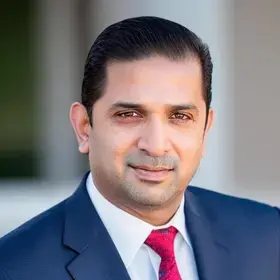As a Columbia graduate, Dr. Edna Chun had high expectations when she joined the Master of Science in Human Capital Management (HCM) program as a lecturer in the fall of 2020. The award-winning author and sought-after speaker knew she’d have access to Columbia’s rich resources, but found that the depth of scholarship, research, and opportunity at HCM was beyond even her highest hopes. Dr. Chun makes sure to capitalize on as many of these resources as possible for her students in courses from “Introduction to HCM” to the Capstone course. She explains, “I have been able to draw on these connections through guest lectures by Columbia’s scholar practitioners and global HCM and diversity leaders in my courses over the past year.”
Dr. Chun possesses more than two decades of strategic human resource and diversity leadership experience. She has co-authored twelve books in the areas of talent management, human resources, and diversity — two of which earned her the prestigious Kathryn G. Hansen Publication Award from the College and University Professional Association for Human Resources (CUPA-HR). Her latest co-authored book, Leveraging Multigenerational Workforce Strategies in Higher Education (Routledge 2021), became only more relevant and crucial during the COVID-19 pandemic. She says, “I am continuing my exploration of multigenerational workforce strategies as a strategic organizational asset and source of innovation and creativity. This book has gained particular traction due to the pandemic as colleges and universities have had to address the impact of budget cuts and declining enrollment.” While much has been researched concerning diversity initiatives, Dr. Chun’s book, co-authored with Alvin Evans, is the first to explore the importance of a multigenerational workforce in higher education from a research-based perspective. “In the current environment, it is particularly important for institutions of higher education to leverage the power and synergy of intergenerational talent resources,” she adds.
Throughout the past year, Dr. Chun shared her findings in a number of panels, publications, forums, and, of course, lively classroom discussions. She hopes that this will inspire both students and industries to think differently about workplace optimization post-pandemic, saying, “seminars that I have facilitated over the past year have focused on diversity assessment through institutional diversity audits, inclusive teaching strategies, and enhancing global HCM/diversity competencies. A recent area of my consulting work has been on approaches to building diversity capacity in the technology industry in the post-pandemic era.”
The opportunity to interact directly with respected thought leaders from all over the globe, isn’t restricted to faculty. Dr. Chun reminds prospective students that Columbia HCM offers hands-on experience that will allow them to comfortably jump into the workforce with implementable, game-changing ideas. “A particularly valuable aspect of the program involves team project presentations in which students present their solutions on key HCM issues to executives and leaders from the corporate, non-profit, and higher education sectors. The rich environment at Columbia and classes taught by scholar-practitioners offers the potential for students to explore real-world strategies that enhance their success and ability to contribute to the organizations in which they work,” she says.


